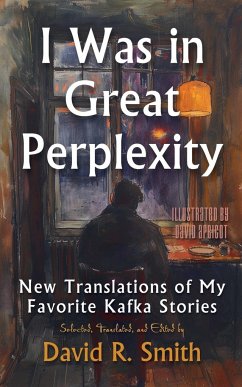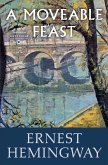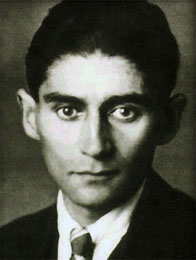( Please Note: there is a second edition of this book available now: ISBN 9781763641716) - DRS Franz Kafka's short stories are cornerstones of early 20th-century literature, offering profound insights into the human condition, alienation, and the absurdity of existence. Each story, while distinct in its narrative and themes, embodies Kafka's unique style and philosophical inquiries. These are my personal favorites. This new translation is richly illustrated by David Apricot. Contains the following stories (and a few more as a bonus): "The Metamorphosis," perhaps Kafka's most famous work, tells the tale of Gregor Samsa, a traveling salesman who awakens one morning to find himself transformed into a gigantic insect. This surreal transformation is not the central horror of the story; rather, it is Gregor's subsequent alienation and the disintegration of his family relationships that form the crux of the narrative. Kafka uses Gregor's plight to explore themes of identity, self-worth, and the crushing nature of societal expectations. The story's stark depiction of Gregor's descent from breadwinner to burden highlights Kafka's preoccupation with existential anxiety and the dehumanizing effects of modern life. "A Country Doctor" is a nightmarish tale that captures the protagonist's futile efforts to assist a young patient. The doctor, summoned in the dead of winter, faces a series of surreal and disorienting events, including a phantom groom and a mystical journey. The narrative is imbued with a sense of helplessness and inevitability, as the doctor grapples with his own inadequacies and the insurmountable barriers of fate. Kafka's portrayal of the doctor's struggle against the incomprehensible forces surrounding him underscores the futility of human endeavor and the pervasive sense of isolation. "In the Penal Colony" is a harrowing exploration of justice and punishment. The story is set in a penal colony where an elaborate and brutal execution device, designed by the previous commandant, inscribes the condemned man's sentence onto his body in a slow, torturous process. The officer in charge is a fervent believer in the machine's efficacy, while the visiting explorer is horrified by its barbarity. Through this grim narrative, Kafka delves into themes of authority, guilt, and the often arbitrary nature of justice. The story's chilling conclusion, with the officer's self-imposed execution, serves as a poignant commentary on blind devotion to outdated and inhumane practices. "The Hunger Artist" portrays the life of a professional starvation artist who performs in a cage, fasting for extended periods. Despite his commitment to his art, the hunger artist feels misunderstood and unappreciated by the public. His final act, dying of starvation in obscurity, reveals the ultimate futility of his quest for recognition and purity. Kafka's story is a profound meditation on artistic integrity, the nature of suffering, and the disconnect between the artist and society. The hunger artist's plight mirrors Kafka's own struggles with his creative process and the external pressures of public perception. Together, these stories encapsulate Kafka's literary genius and his deep existential concerns. Each narrative, with its blend of surrealism, psychological depth, and philosophical inquiry, offers a glimpse into the complex, often bleak world Kafka envisioned. Through his distinct and haunting prose, Kafka examines the individual's place in an indifferent universe, the search for meaning, and the inevitable confrontation with one's own limitations. These stories remain timeless in their exploration of the absurd and the tragic dimensions of human existence, cementing Kafka's legacy as a master of modern literature. Contains an introduction from the Editor. This book is in English.
Hinweis: Dieser Artikel kann nur an eine deutsche Lieferadresse ausgeliefert werden.
Hinweis: Dieser Artikel kann nur an eine deutsche Lieferadresse ausgeliefert werden.









